 One hundred years ago, Middleborough experienced an extended heatwave and drought, then one of the most severe on record.
One hundred years ago, Middleborough experienced an extended heatwave and drought, then one of the most severe on record.
July 3, 1911, was reported as the hottest day for many years with the temperature hitting “101 in the shade at the postoffice at noon.”
Masons who were at work on the stonework of cellars here had to give up. Farmers in South Middleboro and the Green neighborhood quit the hayfields early [on the morning of the 4th], the horses and men not being able to stand the rising heat from the newly mown hay…. The railroad sectionmen suffered greatly and finally had to give up work.
Local cranberry bogs were seared from the combination of excessive heat and a lack of rain, and cranberry growers held all water possible in reserve in their reservoirs. Fears were widespread that much expensive crop and timberland would be destroyed were a fire to start.
Fires, in fact, did start. “During the intense noonday heat” on July 3, a fire was discovered in the woods between Plymouth and Plympton Streets east of the Nemasket railroad station at the Green. “Available men in the village were summoned by the sectionmen. They fought the fire for three hours, finally extinguishing it.” The house of Edward Buchanan was threatened, but saved by a last minute change in the wind direction which pushed the fire into the Meetinghouse Swamp.
While men were busily engaged fighting the Green fire, elsewhere in Middleborough in possible in preparation for festivities on the fourth, Middleborough police cracked down upon the illicit sale of alcohol, which some may have sought as a relief from the heat. Chief of Police Harry Swift and his men seized a number of packages containing illegal alcohol which were being shipped by the Eagle Express Company at Middleborough. “The chief claims that there were several packages of liquor wrapped up and marked to the name of the owner but that the collection of packages was placed inside a large hamper which was locked and not marked on the outside as to the nature of the contents.”
The heat continued through the middle of the month, causing the death of 69-year-old Sarah W. Howes at her Center Street home. “She was found on the floor and had expired about an hour before found.”
Without rain, local woodlands remained tinder dry. A more serious woods fire was started near Tispaquin Pond July 15, and was attributed to a careless smoker who had been blueberrying. The blaze, fueled by the dry woods, spread rapidly northeastwards towards Thomastown, “endangering the residences of Charles Taggard, Josiah Thomas, Joseph Thomas, Benjamin Hathaway and others.” Though the fire was believed to have been brought under control on the afternoon of the 15th, the following day a gang of firefighters was called out to fight the fire which was once more out of hand. The men remained at work all through the night, and the fire was forced underground where it burned into the peat. The potential for a long-burning fire was high, “unless there is a drenching rain to extinguish it”. Watch was kept on the fire which continued to burn underground for a number of days, and though it failed to break out, it spread towards a valuable woodlot owned by Joseph Thomas near the intersection of Purchase and Chestnut Streets. The fire was not brought fully under control until the end of the month. Before it was extinguished, it destroyed some $5,000 worth of standing and cut timber with Charles Taggard and Josiah Thomas being the biggest losers
Given the cause of the fire, woodlot owners throughout Middleborough not surprisingly posted no trespassing signs on their properties.
Especially is this true of the huckleberry patches, and some farmers threaten to prosecute anyone gathering berries on their land. The reason is the prevalence of woodland fires. The berry pickers, the land owners believe, smoke in the woods and swamps, and occasionally a fire starts from it.
Though heavy rains finally came towards mid-month, they had very little effect, and it was noted on July 25th that “even the heavy rains do not appear to revive vegetation to any marked degree.”
Great fields of grass are burned brown, and it is improbable that there will be a second crop off the land this year. Garden truck is short, and prices are accordingly high.
Based upon the failure of a large portion of the vegetable crop, the prospect for the fall’s cranberry crop was bleak. Ironically, hopes for a high yield for 1911 had initially been high. The cranberry crop had escaped the June frosts which in some years previous had plagued growers. The drought and hot weather, however, dashed these prospects, and growers by July were estimating that half the crop would be lost.
Blossoms which were plentiful withered and came to naught, it is said, on account of the terrible heat, and some bogs look like a red blanket, where the sun burned them. This was on “dry bogs,” which have no water flowage facilities.”
Such dry weather had not been recalled by most within living memory in either Middleborough or Lakeville. Percy Robbins of Lakeville who formerly required rubber boots in order to mow his fresh meadow was able to do so in just a pair of sneakers, so dry had it become. One local tradition in Lakeville held that “hay was never cut, made and gathered into the barns unless nature sent a rousing rainstorm to wet it. The countryside says that for 20 years or more the hay has always got a wetting, but this year it was cut and harvested without a drenching.”
Finally, the heatwave and dry spell broke at the end of July, when a series of storms passed through the region. One violent storm on July 28 carried high winds which blew off a portion of the tin roof of the Peirce Block at the corner of Center and North Main Streets. Fortunately there was no one in the street below at the time, as the torrential rain had driven everyone indoors.
Illustration:
Original photograph courtesy of busymonster. Republished under a Creative Commons license.
Sources:
Brockton Enterprise, "Fought Fire Three Hours", July 3, 1911; "Seize Liquor at Middleboro", July 3, 1911; "Quit Work at Middleboro", July 4, 1911; "Expires from the Heat", July 13, 1911; "Middleboro", July 17, 1911; ibid., July 19, 1911; ibid., July 20, 1911; ibid., July 23, 1911; ibid., July 25, 1911; "Half a Cranberry Crop", July 26, 1911; "Roof Off in Middleboro", July 29, 1911




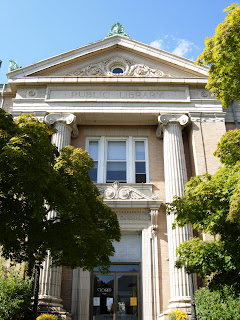
















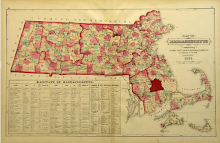
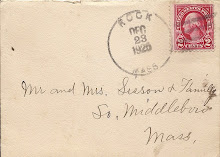


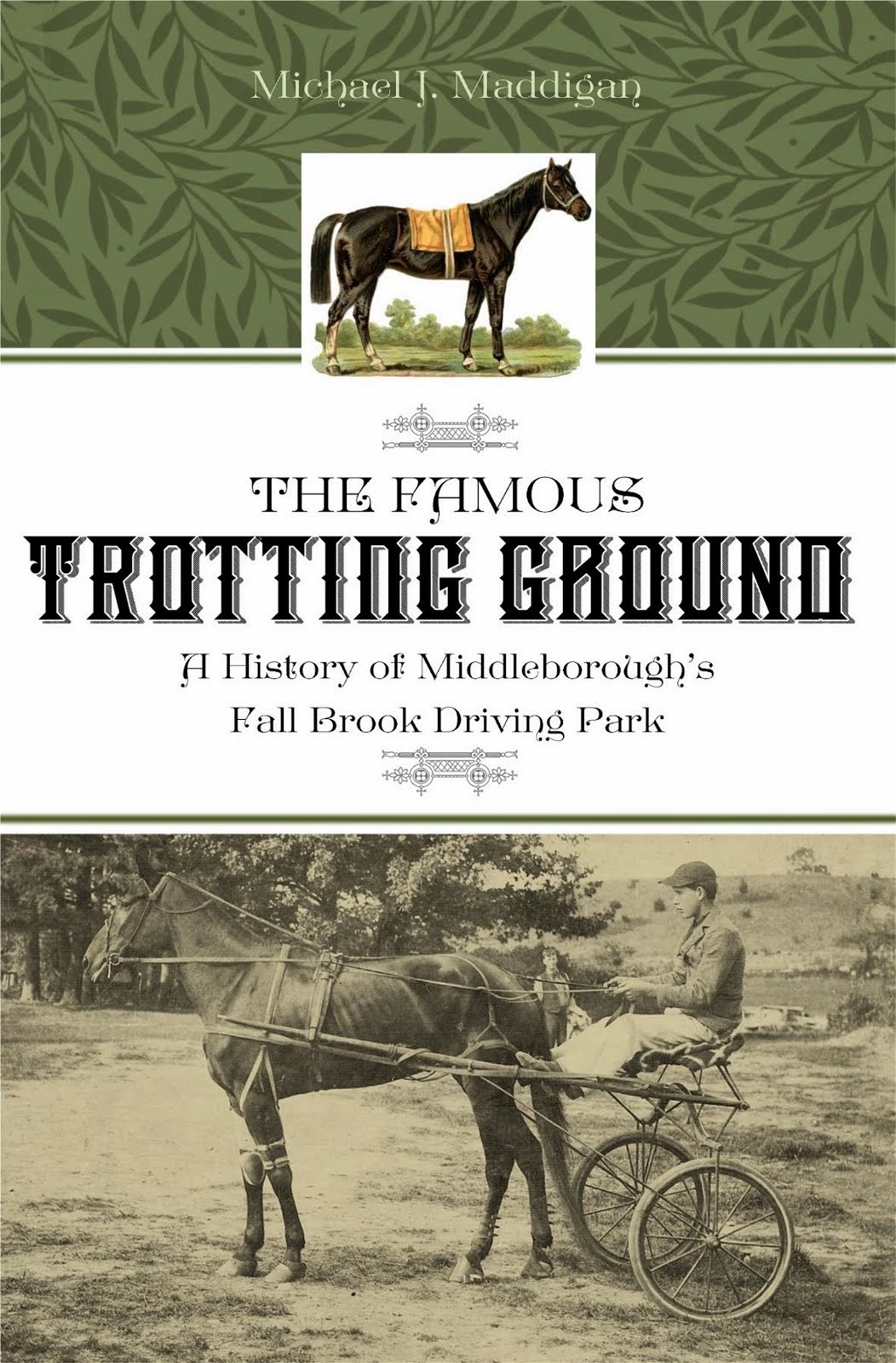


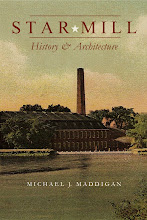
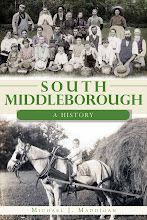



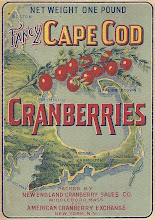






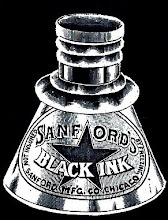
+of+Smoky+Mountains+018.jpg)